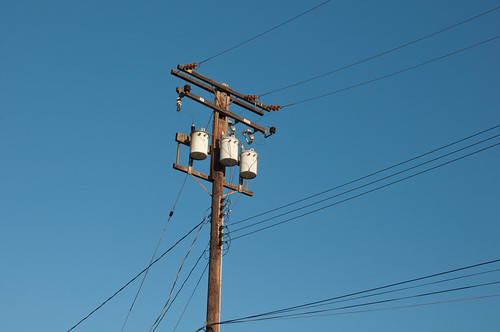Due to ZESA and ZETDC’s monopoly, incompetence and continued intransigence, Zimbabweans are faced with both random blackouts and tariff increments.
We have to accept, both as members of the business community and as private individuals, the reality of the perennial electricity shortages and try and just deal with them. Some are running their businesses at night, others have stopped running their geysers entirely.
Saving power (hence money) means looking at how we can help conserve energy for our own good, however insignificant such actions might appear.
Here are some tips on how to save electricity in your home:
Kitchen tips
Stove:
- A conventional oven uses the same power as 18 microwave ovens. So, rather use you microwave oven to cook. It is much quicker and cheaper.
- Do not defrost food in the microwave oven. Rather leave it in the refrigerator to defrost.
- When you use your stove, match your pot to the size of the stove plate. Also, keep the lid on the pot to conserve heat and energy.
- Do not cook food for longer or with the controls set higher than absolutely necessary.
- If you have a stove with heavy solid plates that retain heat, switch off the plate a few minutes before removing the pot.
- Keep oven doors completely closed until the food is cooked. Every time the door is opened the oven temperature drops, and the heat must be replaced.
Kettle:
- Boiling one cup of cold water in the kettle for one cup of tea will save time and money.
- Boiling water in a kettle is much easier and more economical than using the stove.
Refrigerators and freezers:
- When you open your fridge door for more than a moment, it loses cold air. Cooling it down again will take a lot of electricity. So be quick and don’t let all that cold air out.
- Do not place hot food in the refrigerator or the deep freeze.
- Allow it to cool outside first.
- Do not overload your refrigerator or freezer.
- Ensure that the door seals are in good condition.
- Do not put the refrigerator near the oven.
Lounge tips
Television:
- Switch the television off when nobody is watching. If you leave your television on standby mode, the standby light alone uses up to 50% of the power the TV would use if it was actually on. You will be amazed at how much electricity you will save.
Radio:
- If you are not listening to the radio, switch it off – this is an instant saving.
Light bulbs:
- Try to replace as many of your light bulbs as possible with CFL energy-saving bulbs. They last much longer and use far less electricity. CFLs last eight times longer and use 80% less electricity. Don’t wait for ZESA’s “free” ones.
- Do not leave lights burning unnecessarily.
Heaters:
- Rather use a temperature-controlled oil heater or a gas heater for space heating.
- Sit as near the heater as possible in order to avoid the need to have both elements switched on together.
- Switch off the heater when leaving the room for any length of time.
- Curtains help to retain the heat in a room. Draw the curtains early in the evening.
Study tips
Computer:
- Always switch your computer off at the power button. If you leave it on standby or “sleep mode” it uses up to 50% of the power it would use if it was actually on.
Other equipment:
Any other office equipment, such as printers, should also be switched off when it is not in use. By leaving it on, you are wasting electricity and putting the machine under unnecessary strain.
Bathroom tips
Shower instead of running a bath. When you shower, you use less water. This means that your geyser will need less electricity to heat the water. You can save quite a lot of money.
Geyser:
- To save electricity, get a plumber to turn the thermostat down to 60 degrees. Better still, switch off your geyser when you get home after work and switch it back on when you go to bed. Shower or bath in the mornings. You’ll save a small fortune.
- Do not allow hot water taps to drip. Repeat, do NOT allow hot water taps to drip.
Swimming pools
Filter pump:
- The filter pump is likely to be amongst the largest consumers of electricity, accounting for up to 20% of the home’s electricity consumption. Operate the filter pump only for the minimum periods necessary. During winter algae growth is limited and the use of the filter cleaning system can be reduced to once every
few days.

